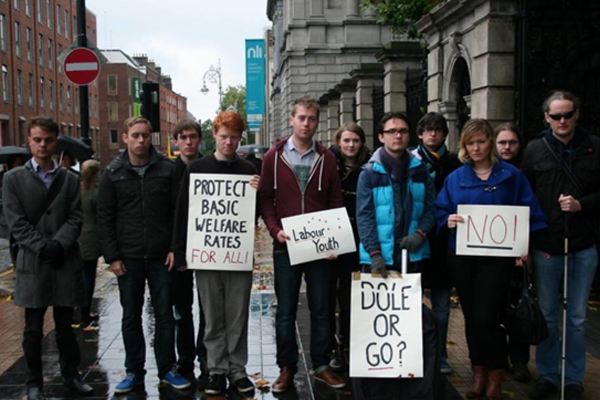|
Youth Delegates Call For Systematic Changes To Global Youth Employment Policies
More than 200 young change makers from 65 countries have issued a call for a range of “systematic changes” in youth employment policies, noting that “business as usual is not working for youth”. They issued the recommendations at the end of the three-day ILO Global Youth Employment Forum, attended by the ILO’s Director-General, Guy Ryder, in Abuja, Nigeria. The proposals will inform implementation of the ILO Call for Action on Youth Employment, until 2030. The young delegates called for macro-economic and sectoral policies that target employment – rather than just economic growth – and build resilience to climate change.
They also stressed the need for greater investment in access to quality education and skills development systems. This should be complemented by tailored approaches to lifelong learning and skills certification, which utilize technology and protect the rights of those in internships and apprenticeship schemes.
Labour market policies should place more emphasis on job quality and targeting, so that the benefits reach young women, young people with disabilities, young migrants and refugees, young platform economy and informal sector workers, youth in the rural economy and in hazardous occupations, and those from indigenous and ethnic groups.
More emphasis should be placed on the transition from low-quality, low-productivity self-employment to more productive, innovative, entrepreneurship. In particular, there is a need for policies and regulations that respect the rights of young workers in the platform economy.
In addition, delegates called for gender equality and greater protection for youth labour rights and related issues, such as the right to time sovereignty, data privacy, internet access and the right to disconnect.
Speaking at the event, the ILO Director-General stressed the important role that young women and men play in identifying solutions and fostering collaboration across sectors and continents. He reaffirmed the ILO’s commitment to work with and for youth and called upon all stakeholders to build a future that meets young people’s aims and aspirations.
During the event, Ryder launched the Knowledge Facility of the Global Initiative on Decent Jobs for Youth , a digital platform of tools, publications, databases and thematic resources to support action on youth employment.
As well as the youth change makers, representatives of governments, trade unions, employers’ organizations and civil society also attended the conference. Together, they aimed to find ways to boost employment creation through structural transformation, particularly in emerging sectors such as the digital, green, creative, and care economies. The importance of partnerships was also underlined during discussions. The event was hosted by the Nigerian Government in Abuja, Nigeria 1-3 August.
|



